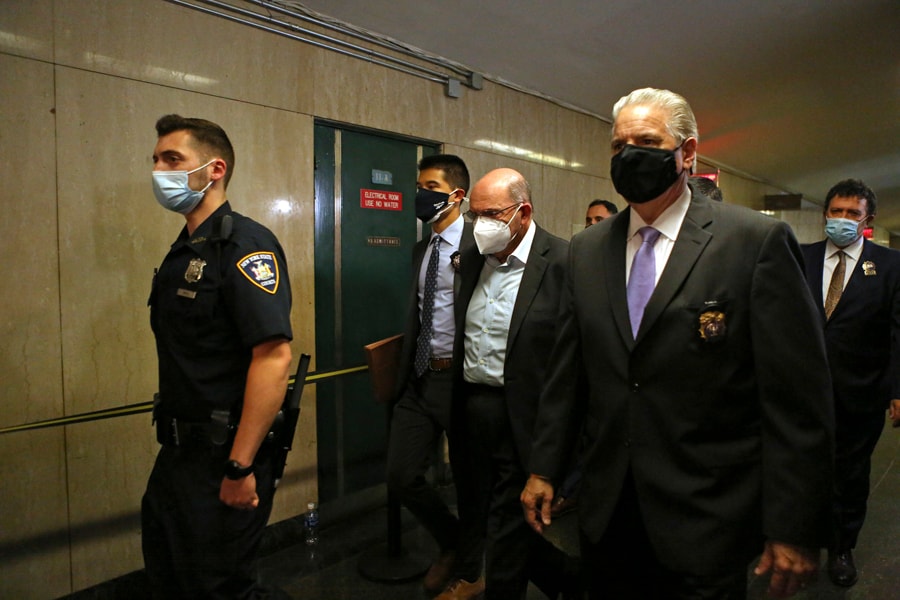
Trump Organization strips CFO Allen Weisselberg of roles after indictment
The move could be a potential precursor to a wider shake-up at former US President Donald Trump's company, as the reality of the indictment takes hold for Trump and his senior executives
 Allen Weisselberg, center, the chief financial officer of the Trump Organization, arrives at Manhattan Supreme Court to face criminal tax charges, July 1, 2021. The removal of Weisselberg from leadership positions he held atop dozens of the company’s subsidiaries could signal a looming shake-up in former President Donald Trump’s family business. (Jefferson Siegel/The New York Times)
Allen Weisselberg, center, the chief financial officer of the Trump Organization, arrives at Manhattan Supreme Court to face criminal tax charges, July 1, 2021. The removal of Weisselberg from leadership positions he held atop dozens of the company’s subsidiaries could signal a looming shake-up in former President Donald Trump’s family business. (Jefferson Siegel/The New York Times)
A week after state prosecutors in the New York City borough of Manhattan indicted Donald Trump’s family business and its chief financial officer, Allen Weisselberg, the company began removing Weisselberg from every leadership position he held atop dozens of its subsidiaries, according to a person with knowledge of the matter.
The move could be a potential precursor to a wider shake-up at the former president’s company, the Trump Organization, as the reality of the indictment takes hold for Trump and his senior executives. While Weisselberg continues to work at the Trump Organization, and there is no indication that Trump wants to cut ties with him, the company might seek to move him into a lower-profile role.
The Trump Organization set the change in motion last week as it began to erase Weisselberg’s name from subsidiaries or corporate entities affiliated with him, the person with knowledge of the matter said, and public records Monday reflected that he was no longer linked to at least 20 Trump companies incorporated in Florida. As the records are processed in other states in the coming days and weeks, the full scope of his removal will come into focus.
The decision to remove Weisselberg, who has faced mounting pressure from prosecutors to turn on Trump and cooperate with the investigation, represents the latest fallout from the criminal tax charges unveiled July 1 against him and the Trump Organization.
The indictment outlined what prosecutors described as a 15-year scheme to pay Weisselberg and other employees through off-the-books perks and bonuses. That enabled Weisselberg to evade nearly $1 million in federal, state and local taxes, prosecutors said.
©2019 New York Times News Service







